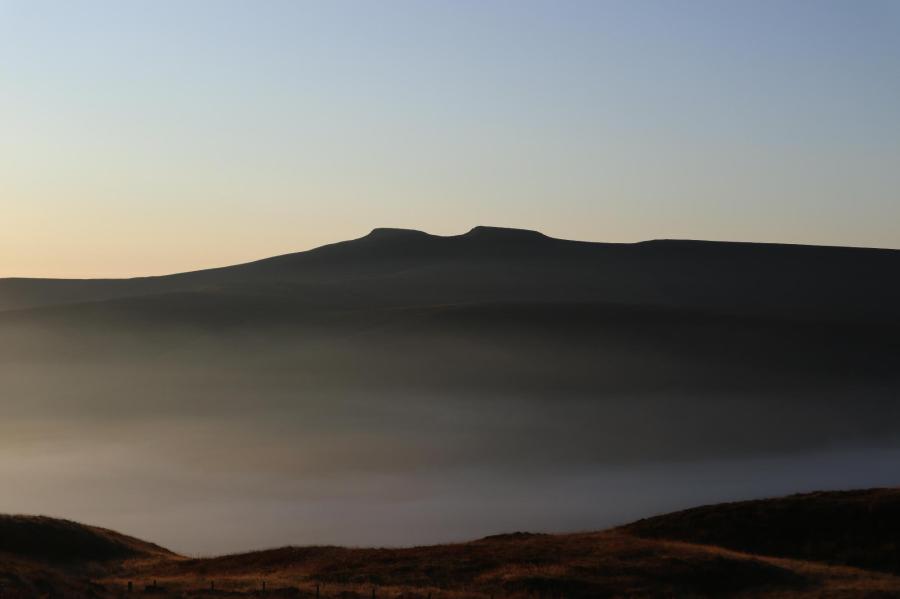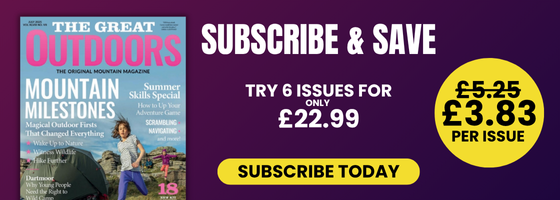Many beautiful Welsh place names have been lost – so the restoration of Welsh names for national parks is to be applauded, argues Will Renwick.
The national park formerly known as the Brecon Beacons has been all over the news recently after the park authority revealed that it will be reverting to solely using the Welsh name for the region, Bannau Brycheiniog, in the future.
It was an announcement that was somewhat predictably seized upon immediately by conservative commentators, including the likes of Nigel Farage, Laurence Fox and David Davis, who were up in arms decrying the decision and blaming it on ‘wokeness’. By and large, those against the move seem to be asking: what’s the point?
Many Welsh people, myself included, can very much see the point. Not so long ago, I was exploring the Cambrian Mountains, a wild part of my home country that I keep finding myself drawn back to. At the head of a long, narrow valley I remember coming across a secluded cottage and admiring the beautiful view that its residents were lucky enough to have.
I later found out that this cottage has been the subject of a fierce argument. Its owners, it turns out, had officially renamed the house, changing it from Pontbren-ddu, which roughly translates as Black Bridge, to Little Pudding Cottage. Look at old maps and compare these to the latest one by Ordnance Survey and you’ll see the change. It is a case of Welsh history and a part of our culture – a culture which is a part of the whole British isles – quite literally wiped off the map.

Pen y Fan and Corn Du, the two highest peaks in Y Bannau.
Hakuna Matata
The reality is that Welsh place names have been getting renamed for ages – but usually into English.
In North Wales, in the shadow of Tryfan, sits a lake that many readers of The Great Outdoors will be familiar with. It’s called Llyn Bochlwyd, which means “Lake of the Greycheek”. Legend has it that this is the spot where an old grey stag leapt down from high up on the cliffs to escape a hunter before swimming to safety while holding its grey cheeks above the surface. Quite the story behind the name, then. As the comedian and Welsh language activist Tudur Owen recently highlighted, however, there have been instances where English language guidebooks refer to this not as Llyn Bochlwyd but as Lake Australia. Why? Because it’s shaped (a bit) like Australia.
Cwm Cneifion, also in Eryri, is another example. If you look for such a place on some maps you’ll instead find somewhere called The Nameless Cwm. And down south in Carmarthenshire, there’s Banc Cornciyll, which means ridge for lapwing or plover birds, but a couple of years ago, the new owners formally changed the name to Hakuna Matata. I wish I could tell you that last example is a joke but tragically it’s not.
Then there’s Swallow Falls (Rhaeadr Ewynnol), Aber Falls (Rhaeadr Fawr), Sugar Loaf (Mynydd Pen-y-fâl) and the Skirrid (Ysgyryd Fawr). I could go on.
These instances reflect the wider truth that the Welsh language will always be swimming against a strong tide and its future is hugely fragile. By coincidence, I’m writing this article while sitting in an airport cafe waiting to catch a flight back from Tenerife and ahead of me is a poster that describes how to order a beer in around 50 different languages. There’s Yiddish, Flemish and even Irish and Scottish Gaelic. But Welsh, one of the oldest languages in Europe, isn’t there. It’s a language that’s generally been forgotten about outside of Wales and we need to make sure we don’t forget it ourselves.
For these reasons, I was also happy to see the Snowdonia national park authority’s decision in November of last year to prioritise the Welsh names Yr Wyddfa (Snowdon) and Eryri (Snowdonia) over their English equivalents.
A storied name
Bannau means ‘peaks’ and Brycheiniog refers to the old kingdom of Wales’ fifth-century ruler, Brychan, one of the most important characters in Welsh history and mythology and the first name in a long-lasting dynasty that you could argue shaped Welsh culture as we know it today. The name, Bannau Brycheiniog, is storied. It isn’t new and it’s long been in use by many local people. In fact, it’s already included on the majority of signs throughout the park.

The author Will in Eryri, also known as Snowdonia. Photo: Ray Wood
Since the switch to Bannau Brycheiniog was revealed, another common complaint alongside ‘what’s the point’ seems to be that the words are unpronounceable. I find this a perplexing hill to die on. Tricky as they might be to English tongues, learning them shouldn’t really take that long. Many English speakers don’t have any trouble getting their head around ‘Mont Blanc’ or ‘Chamonix’ so why are Welsh place names different?
The thing is, you can’t teach those who don’t want to be taught. It all reminds me of an English friend who made out that he had great trouble pronouncing my mum’s name, Ceri, which is pronounced in a similar way to the Irish name Kerry. He believed it should be pronounced ‘Serry’. In return I asked him if he had trouble with words such as cat, curry, crate or copper.
To me, the argument that Welsh words are too hard to learn is just an open confession of ignorance and the only explanation for this that I can think of is that some people feel threatened by the promotion of Welsh because they see it as anti-English. “If these Welshies want to divorce themselves from England and its language, then go ahead,” wrote one Twitter user. “But you’ll be entirely on your own, with not one single penny from us.”
The reality is that those who can’t pronounce Bannau Brycheiniog (it’s Ban-eye-breck-ainy-og, by the way) don’t have to, and the national park authority have said as much themselves. Visiting hillwalkers unfamiliar with Welsh can carry on with the Brecon Beacons if they so choose and squaddies fed up with their repeated training exercises in the area can stick with “the f***ing Brecons”.
But I’ll personally be using Y Bannau, the affectionate name that many locals have used for some time.
Will Renwick is Content Editor at The Great Outdoors. He is from from South Wales.







